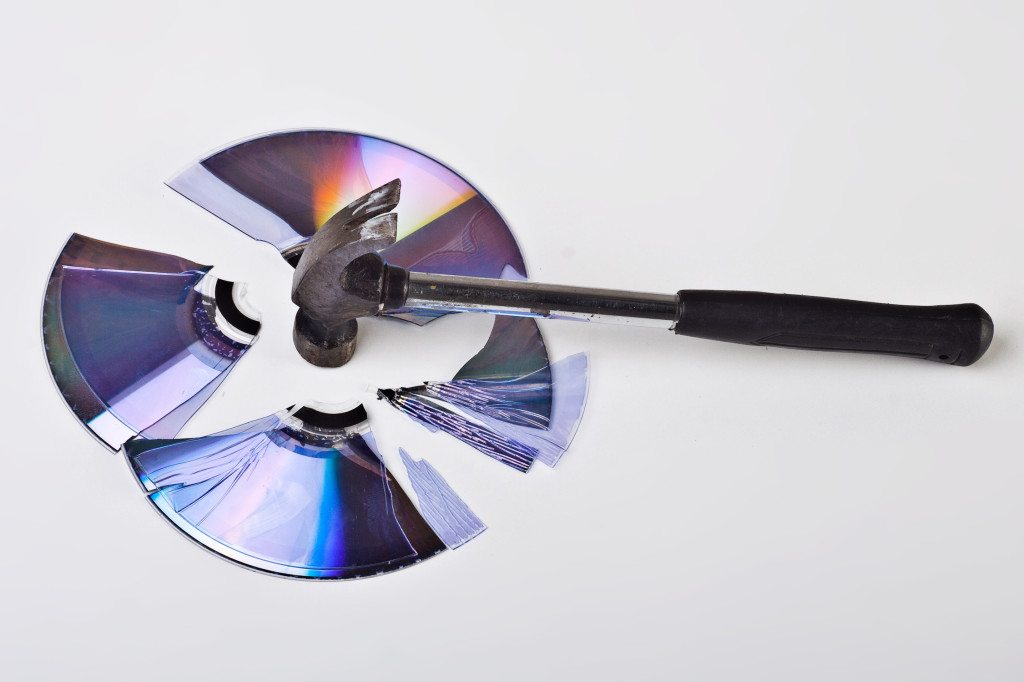30 Days with Surface Pro 3: Day 8
When it comes to devices like the Surface Pro 3, or even hybrid 2-in-1 devices like the Dell Latitude 13 7000 2-in-1, there is a tradeoff made between functionality and size. In the interest of keeping the Surface Pro 3 thin and light it lacks any sort of DVD or CD drive, which limits your options for installing software. For today’s 30 Days with Surface Pro 3 post, we’re going to take a closer look at how to install software on the device—especially software you acquire or already own that happens to come on a shiny plastic disc of some sort.
When Microsoft launched the original Surface Pro there was more emphasis on the Windows Store. The Windows Store is still a primary source of new apps for Windows 8 / 8.1 (and the Windows 10 Technical Preview) and it has grown to include most of the apps you’d expect to find. You can even find necessities like Microsoft Office in the Windows Store, but if you select it you will be redirected to the Office website where you can purchase and download Office.
The tepid response to Windows 8, however, has led Microsoft to back pedal in some respects—bringing the focus back to the desktop and traditional Windows software, with less emphasis on the Windows Store apps. The question, then, is how do I get software I already own on CD or DVD installed on a tablet device that has no optical drive?
There are a few ways, actually.
Where there’s a will…
You could buy an external DVD drive. They come in all shapes, sizes, and colors and they’re relatively cheap. You can buy an ultrathin Samsung USB DVD drive that can both play and record data on DVD’s for around $25. It weighs less than a pound, and it’s barely more than half an inch thick, so you could even pack it and take it with you.
Another option is to just borrow one. While the Surface Pro 3 doesn’t have a built-in optical drive, it’s likely that there is still some other PC in your home that does. No? What about friends or family, or a helpful neighbor? How about PCs at work? Surely you have access to a DVD or CD drive somewhere.
If you have a PC with a DVD drive in your home, you should be able to share it over the network so your Surface Pro 3 can install or run software directly from the drive. If you end up using a DVD drive in a friend’s PC or a PC at work, though, you’ll probably have to copy the software to a USB thumb drive, or external hard drive, or to a microSD card so you can use it with the Surface Pro 3.
The best solution
Those workarounds will work if you absolutely have to install software from a disc. The best solution, though, is to stop installing software from a disc. I’m not suggesting that you only acquire new software from the Windows Store—although that is arguably the simplest way to do it as long as the tool you’re looking for is available in the Windows Store. What I’m saying is that most software is available as a download link over the Internet these days.
Downloading software directly to your Surface Pro 3 gets around the disc issue and comes with some unique benefits as well. When you have a physical disc you have to protect it and store it safely. You never know when you might need it, and you’ll need to be able to find it and hope that it’s not scratched and still works properly. You can make backup copies, but the same issues apply to those as well.
With a digital download, you can just store it safely in the Downloads folder on your Surface Pro 3. You can also copy it to OneDrive so it’s safely backed up and accessible from anywhere. You can copy it to a USB thumb drive or an external hard drive. Most importantly, many software vendors maintain a history of your purchases and allow you to go back and download it again for free even if all of the above fail. You can’t do that with a disc.
The problem of installing software on a device without a DVD or CD drive is not unique to the Surface Pro 3 by any stretch. There are many ultrabooks, tablets, and hybrid 2-in-1 devices that shed the disc drive in order to be thinner and lighter. Buy your software online in digital format in the first place, and you won’t need to worry about the lack of an optical drive or jump through hoops to get your software installed.
Day 7: Finding what you need in the Windows Store
Day 9: Shifting gears to Windows 10
- Rethinking Cybersecurity in the Age of AI and Digital Twins - August 25, 2025
- 10 Clever Tech Gadgets Every Student Will Actually Use - August 21, 2025
- The Evolving Face of Ransomware — and How We Can Stay Ahead of It - August 15, 2025




Article is wrong to suggest buying just any ol’ external drive. Also, people that bought software in the old days before everything was downloadable will be forced to pay for the software again. I do not recommend this article as a guide.
First–do you have a brand of external DVD drive you prefer? The article actually makes a specific recommendation of a drive that I own and have used without issue with my Surface tablets and other newer laptops.
As for the software, what makes you suggest that someone would need to re-purchase software they already own?
I just threw out my samsung external dvd drive because when I Googled the model number on Google the reports I read said it is not compatible with Windows 10. I kind of wish I hadn’t thrown it out now. Therefore I’ve been shopping for anything except Samsung. Also additional research, people are saying to only buy external dvd players that have the y connector for extra power and to plug the second usb into the brick that came with the surface pro 3, which you didn’t mention. Lastly, the software I own is Empire Earth, Microsoft Office 2000, Age of Empires 2. I don’t think I can just contact the manufacturer and claim I have the original disks and they will give me a link without paying. (Or can I?) I have a mac with a dvd drive but I don’t know how to share that file. I think I need to create an image of these dvds for my software and then try to install using the image file. My new surface pro 3 is still a work in progress. Thanks.
I’m finding my Surface Pro 3 a Big Pain when it comes to installing software.
Of course, downloading software is a cinch. No problem.
The problem comes when I want to install software I already own (on DVD).
I bought a slimline Samsung DVD player/writer, glibly expecting it ‘just to work’. No sir! The USB slot doesn’t provide enough power….. as I discovered after spending a good deal of time trying to coax it to work, switching cables, rebooting, unplugging, hunting through Samsung forums, Windows 10 forums, Microsoft forums, etc, etc…
So off back to the shop to buy a powered-USB hub.
More time spent trying to get it to work with the SP3 and the Samsung DVD drive.
Eventually I am able to install my legacy software. Hours and hours wasted, two trips out to the shops trying to solve an elementary issue: how to install software from a DVD. Pshaw!
Fast forward a couple of months…. now the setup with the powered-USB hub and the Samsung drive won’t work at all. W10 tells me that the USB device has failed. So…. more time spent switching cables, searching forums… Again – pshaw!
The problem won’t go away. I have expensive language-learning software that has to run from a DVD (DRM issues). There is no alternative.
The problem of installing legacy software on my Surface Pro 3 is surely not an arcane, obscure, eccentric fad of mine. For goodness’ sake, it’s what personal computers are FOR!
I used to be a Windows guy… but 6 years ago, I gradually moved over to Apple…. from iPod to iPad to MacBook Pro. Six months ago, I was tempted to get a Surface Pro 3 (brand new, i7, 8Gb RAM, big discount). My experience with the legacy software installation has brought back all the painful, painful memories of what happens (often) when a Windows machine doesn’t do what is expected of it (and I’m not talking about hardware failure….. just the heart-breaking glitches that are part and parcel of the Microsoft universe).
I would love a Microsoft executive (not a tech guy) just to sit with me and watch all the agony and contortions of getting SP3 just to WORK.
Thanks for being patient and reading this.
Surely somewhere someone gets the point that the basic tech should JUST WORK….. without swallowing up the user’s time, will, and goodwill, without endless unproductive safaris through online blogs, forums, etc…